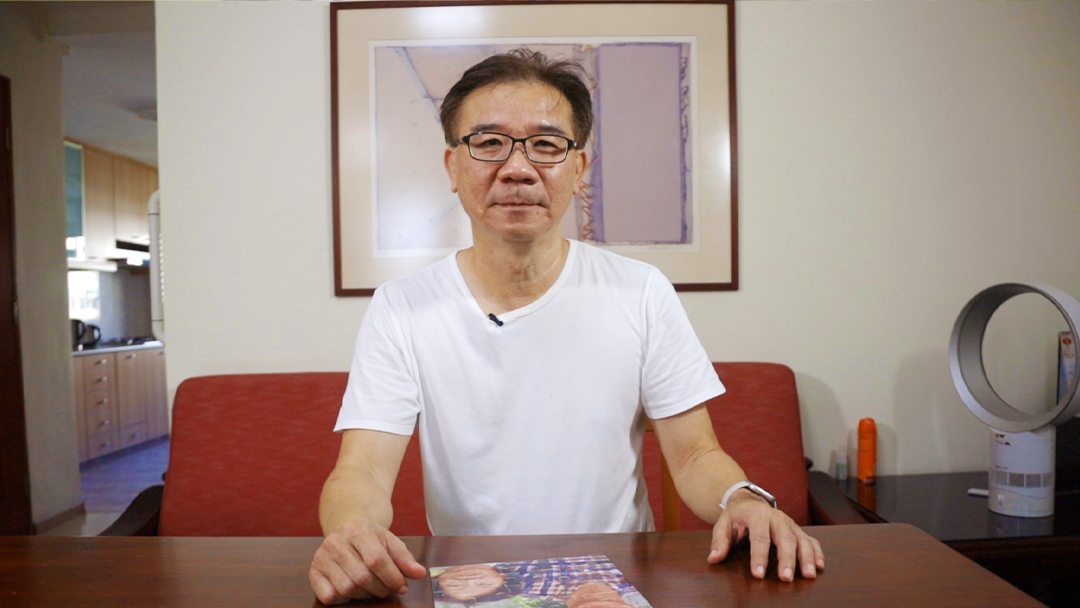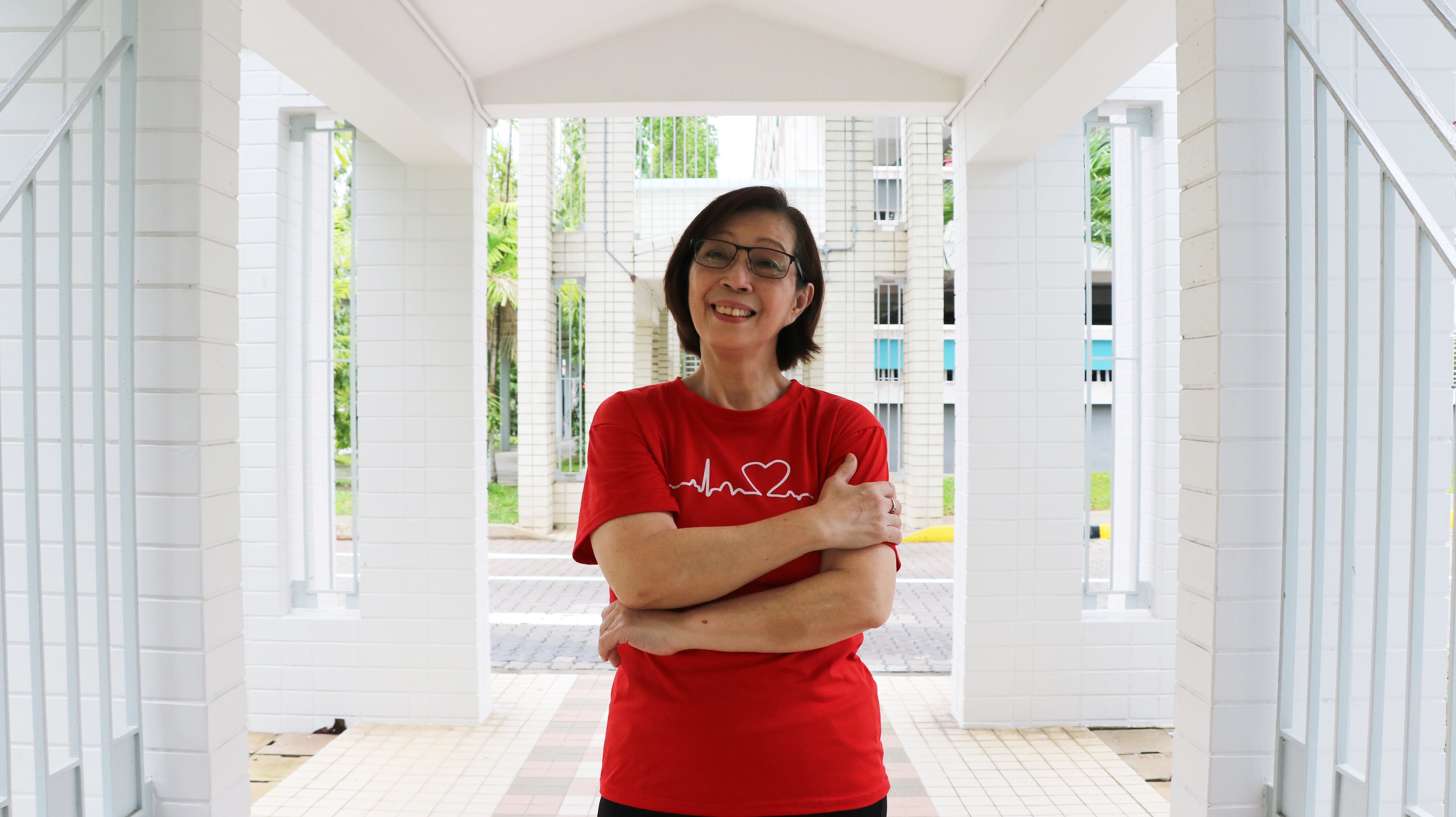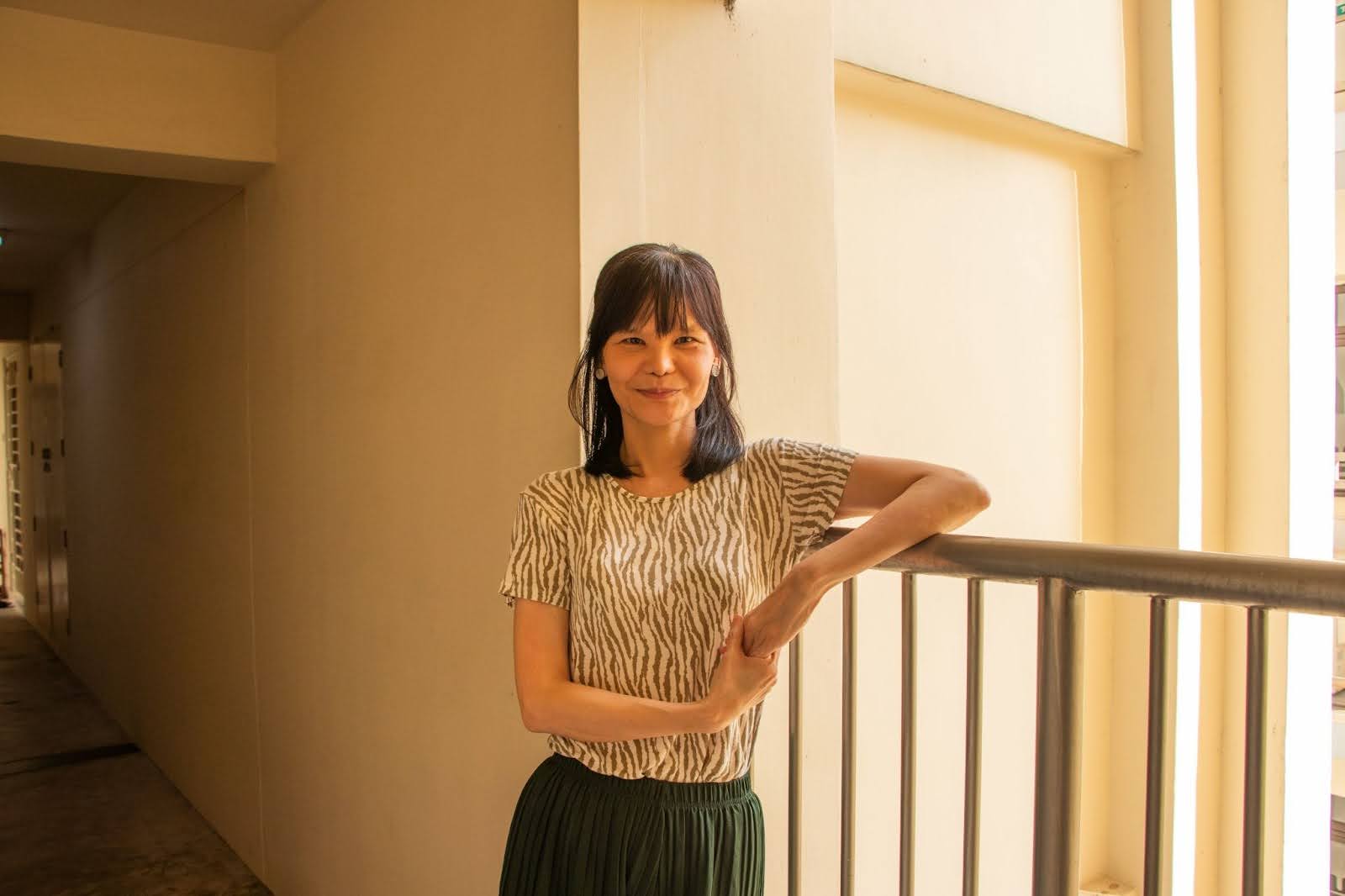Caregivers of people living with dementia live a life of contradictions, and not a small amount of guilt.
Because it can be a long-drawn-out disease, dementia can take its toll on not just those afflicted with it, but also their families and caregivers. Caregivers would find themselves grappling with a few things: dealing with the practical realities of caring for their loved ones, and managing a rollercoaster of thoughts and emotions that the situation brings — such as guilt, impatience, even anger, even though they know it’s not their loved ones’ fault.
Caring for their loved ones opens their eyes to another defining moment of adulthood — where roles have reversed. Now, it’s their turn to be the protector and carer. It’s their turn to parent their parents.
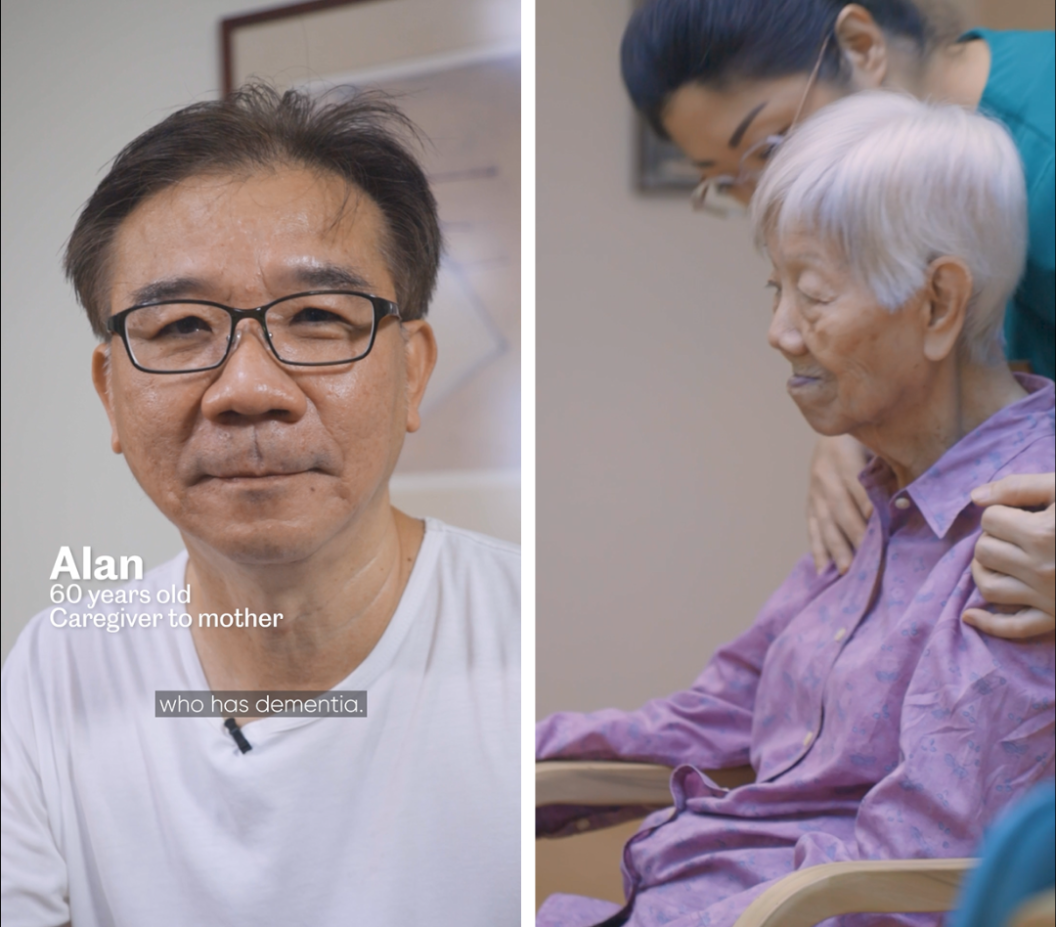
The new responsibilities of caregiving
Mr Alan Tan, 60, faced this new reality three years ago, when he realised that his mum, who was once a very good cook, started making mistakes in the kitchen. “She couldn’t remember ingredients or the steps to a dish,” he recalls.
She also started behaving strangely. “She once went to the market and came back with nothing. One time, she forgot to close the windows before going out. Another time, the owner of a coffee shop stall told me she was looking at the dishes for half an hour and still could not decide what to buy.”
At first, Alan did not pay much attention to those changes, attributing them to her advancing years. It wasn’t until he took her to the hospital for an X-ray after a fall that he realised that it wasn’t just a case of her becoming older. “Her behaviour was so bad during the X-ray. She was hallucinating and thought the nurses were trying to harm her,” he says.
Unable to cope with her increasingly erratic behaviour, Alan engaged a helper to help take care of his mother. “At first, they got along well. And then she started sundowning — towards the afternoons and evenings, she became aggressive and would randomly hit the helper with objects. She would wake up in the night and hit her.”
Sundowning refers to the worsening behaviour of persons with dementia towards the end of the day. People living with dementia may become restless, agitated, suspicious, disoriented, hallucinate, and have difficulties sleeping at night. Sundowning often occurs in the moderate to severe stages of dementia, and may be challenging for caregivers to manage.
Alan took her to a geriatric doctor who diagnosed her with dementia, and suggested activities for her to do during the day. “They mentioned a daycare service and referred us to the Agency for Integrated Care (AIC), who gave us a list of daycare services around our area. SASCO reviewed and accepted her to join their centre.”
His mum spent six days a week (except Sundays) at the daycare, which gave her the socialisation and care she needed — and allowed Alan and his family some semblance of normalcy to do other things besides taking care of her.
“The people at SASCO were very good. She had activities there and she’d come back tired and calm, which made it easier for us to take care of her.” Alan was surprised that his mum loved going to daycare. “She was quite happy there. We were quite surprised that she was willing to go. Before she had dementia, she didn’t really interact much with other people, but she behaved much better at daycare.”

Why night duties are difficult for dementia sufferers and caregivers
The nights were a different story though. Alan said that the doctor advised them to treat the situation with a sense of humour, especially when dealing with his mum’s increasingly wild stories. But it’s hard to laugh, or even smile when the person you’re dealing with became more and more unpredictable.
“She’d wake up four or five times every night, sometimes seemingly every hour. Our record was seven times in one night,” Alan recalls. He likened it to taking care of a toddler, “... but at least with a toddler, there’s a routine. We couldn’t predict what she would do.”
All Alan and his family could do was keep up with his mum. “She wasn’t bedridden, but she was not steady, so fall risk was very high. She was like a kid learning to walk. She couldn’t walk properly but still wanted to walk. So we installed handle bars around the house to help her. ”
While Alan was very grateful for daycare, he admits that what would have been ideal would be for her to be cared for in a nursing home. However, that option was not available to them., “The nursing homes had refused us because she was not bedridden. She needed someone to look after her 24/7.” He adds, “We tried two nursing homes for respite care. But they refused because she was a high fall risk, which was ironic because that was precisely what I needed their help for. So I had no choice but to soldier on.”
And soldier on, Alan and the rest of the family did. “It was very tough for everybody,” Alan says. “I could not rely on the helper to take care of her 24/7. She had a lot of other work. Certain nights, I would ask the helper to sleep and I’d take care of her. The whole family was sleep-deprived. One time my mother woke up at 3am, and my wife sat with her until 5am. We would take turns to sleep.”
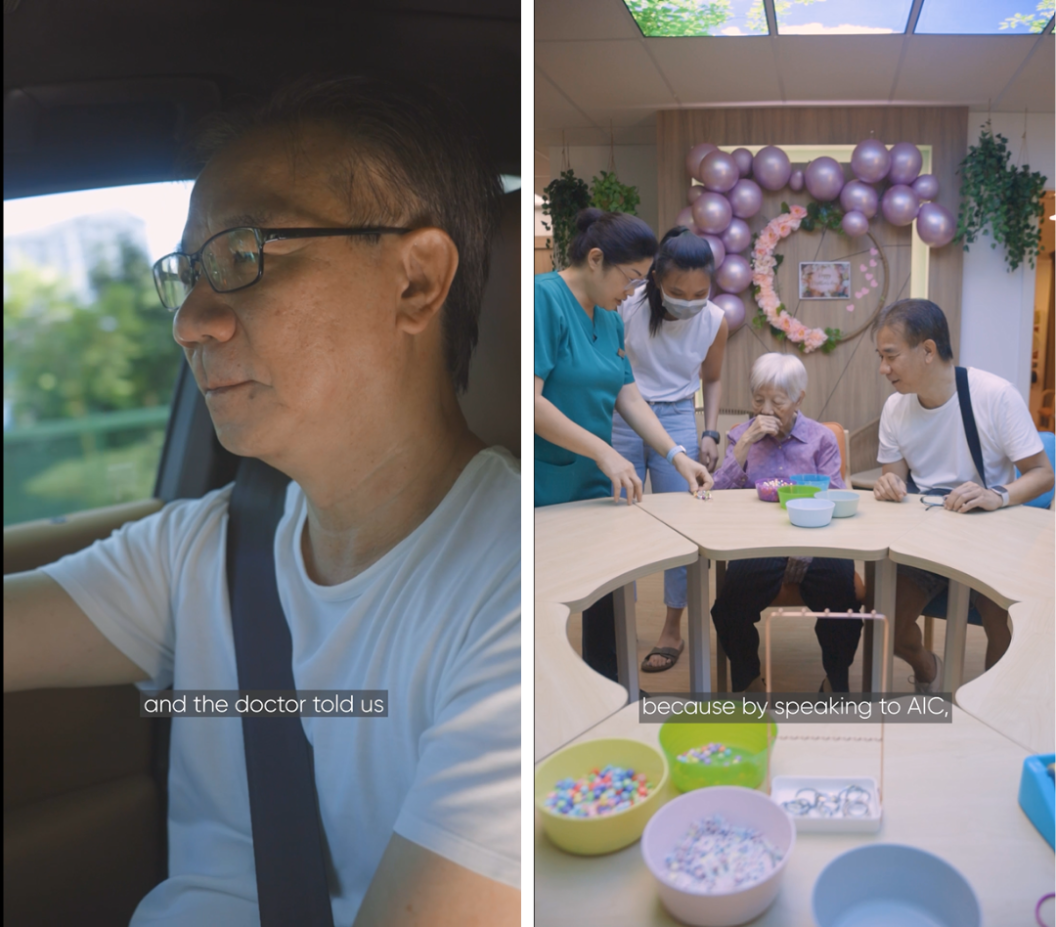
Postscript and reflections
Alan’s mum passed away a few weeks ago, after our initial interview with him. And while the family mourns the passing of his mum and remembers her as she once was, there is also a palpable sense of relief. Such are the contradictory emotions family members of people with dementia feel. On the one hand, you love them because they’re your parent, but on the other, the difficulties and trials have taken their toll.
“She was not the mother I knew,” Alan laments. “She could recognise me and all, but she was ‘gone’. It was just her physical presence that remained. Dementia is no joke; it’s worse than anything I’ve come across. It’s very tough and unpredictable, and I wouldn’t wish it on anybody. My dad had lung and liver cancer. Even that was nothing compared to dementia because there is no treatment, and the doctors cannot do anything.”
But Alan is glad that he got to spend more time with his mum. “This was probably the most time I spent with her after I became an adult,” he admits. “I was the one who took care of her at night, and would bring her to her daycare. So I was glad that I got to spend time with her, even in such difficult circumstances.”
For Alan, taking care of his mum was a learning process. “I was very impatient at the start because I didn’t understand what was going on. I learned to be patient, delve deeper, and try to understand better.”
Caring for his mother also gave him a greater appreciation for caregivers of loved ones with dementia and professional care staff. “Before my experience, my impression of daycare was not very good, there was a stigma. I was actually quite reluctant because it was cheap, subsidised and a non-profit organisation,” he says.
”But SASCO surprised me. The staff was excellent. It’s not easy to do this job every day. Even if you paid me a lot, I wouldn’t be able to do their job. You need to have empathy, so I really appreciate them. I would definitely recommend daycare for people in our situation.”
Alan says taking care of his mum taught him a valuable lesson — one that he freely imparts to other caregivers: “Ask for help. There are a lot of things that if you don’t ask, you wouldn’t know. It’s fortunate that I’m semi-retired. I can’t imagine people who are still working and have to take care of their elderly parents.” Another advice that helped him? “You have to adjust, and live one day at a time.”


